第32章 LETTER VII(14)
Fortune,however,seemed determined that of these bitternesses we should not taste;for the next morning,bright and joyous overhead bent the blue unclouded heaven;while the plain lay gleaming at our feet in all the brilliancy of enamel.I was sorely tempted to linger another day in the neighbourhood;but we have already spent more time upon the Geysirs than I had counted upon,and it will not do to remain in Iceland longer than the 15th,or Winter will have begun to barricade the passes into his Arctic dominions.My plan,on returning to Reykjavik,is to send the schooner round to wait for us in a harbour on the north coast of the island,while we ourselves strike straight across the interior on horseback.
The scenery,I am told,is magnificent.On the way we shall pass many a little nook,shut up among the hills,that has been consecrated by some touching old-world story;and the manner of life among the northern inhabitants is,I believe,more unchanged and characteristic than that of any other of the islanders.Moreover,scarcely any stranger has ever penetrated to any distance in this direction;and we shall have an opportunity of traversing a slice of that tremendous desert--piled up for thirty thousand square miles in disordered pyramids of ice and lava over the centre of the country,and periodically devastated by deluges of molten stone and boiling mud,or overwhelmed with whirlwinds of intermingled snow and cinders,--an unfinished corner of the universe,where the elements of chaos are still allowed to rage with unbridled fury.
Our last stage from Thingvalla back to Reykjavik was got over very quickly,and seemed an infinitely shorter distance than when we first performed it.We met a number of farmers returning to their homes from a kind of fair that is annually held in the little metropolis;and as I watched the long caravan-like line of pack-horses and horsemen,wearily plodding over the stony waste in single file,I found it less difficult to believe that these remote islanders should be descended from Oriental forefathers.In fact,one is constantly reminded of the East in Iceland.From the earliest ages the Icelanders have been a people dwelling in tents.In the time of the ancient Parliament,the legislators,during the entire session,lay encamped in movable booths around the place of meeting.Their domestic polity is naturally patriarchal,and the flight of their ancestors from Norway was a protest against the antagonistic principle of feudalism.
No Arab could be prouder of his courser than they are of their little ponies,or reverence more deeply the sacred rights of hospitality;while the solemn salutation exchanged between two companies of travellers,passing each other in the DESERT--as they invariably call the uninhabited part of the country--would not have misbecome the stately courtesy of the most ancient worshippers of the sun.
Anything more multifarious than the landing of these caravans we met returning to the inland districts--cannot well be conceived;deal boards,rope,kegs of brandy,sacks of rye or wheaten flour,salt,soap,sugar,snuff,tobacco,coffee;everything,in fact,which was necessary to their domestic consumption during the ensuing winter.
In exchange for these commodities,which of course they are obliged to get from Europe,the Icelanders export raw wool,knitted stockings,mittens,cured cod,and fish oil,whale blubber,fox skins,eider-down,feathers,and Icelandic moss.During the last few years the exports of the island have amounted to about 1,200,000lbs.of wool and 500,000pairs of stockings and mittens.Although Iceland is one-fifth larger than Ireland,its population consists of only about 60,000persons,scattered along the habitable ring which runs round between the central desert and the sea;of the whole area of 38,000square miles it is calculated that not more than one-eighth part is occupied,the remaining 33,000square miles consisting of naked mountains of ice,or valleys desolated by lava or volcanic ashes.Even Reykjavik itself cannot boast of more than 700or 800inhabitants.
During winter time the men are chiefly employed in tending cattle,picking wool,manufacturing ropes,bridles,saddles,and building boats.The fishing season commences in spring;in 1853there were as many as 3,500boats engaged upon the water.As summer advances--turf-cutting and hay-making begins;while the autumn months are principally devoted to the repairing of their houses,manuring the grass lands,and killing and curing of sheep for exportation,as well as for their own use during the winter.The woman-kind of a family occupy themselves throughout the year in washing,carding,and spinning wool,in knitting gloves and stockings,and in weaving frieze and flannel for their own wear.
The ordinary food of a well-to-do Icelandic family consists of dried fish,butter,sour whey kept till fermentation takes place,curds,and skier--a very peculiar cheese unlike any I ever tasted,--a little mutton,and rye bread.
As might be expected,this meagre fare is not very conducive to health;scurvy,leprosy,elephantiasis,and all cutaneous disorders,are very common,while the practice of mothers to leave off nursing their children at the end of three days,feeding them with cows'milk instead,results in a frightful mortality among the babies.